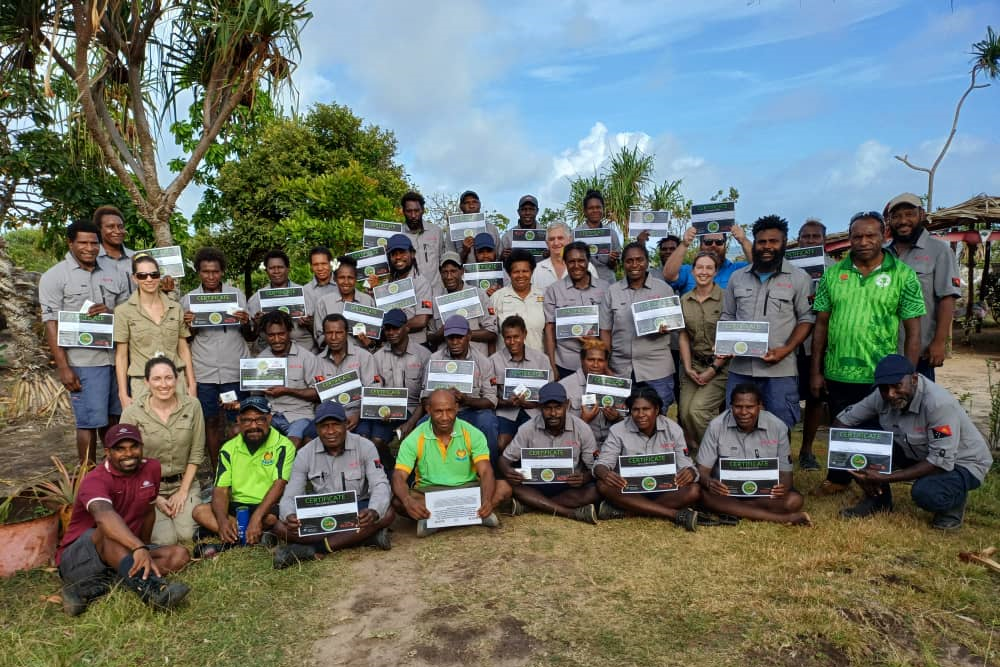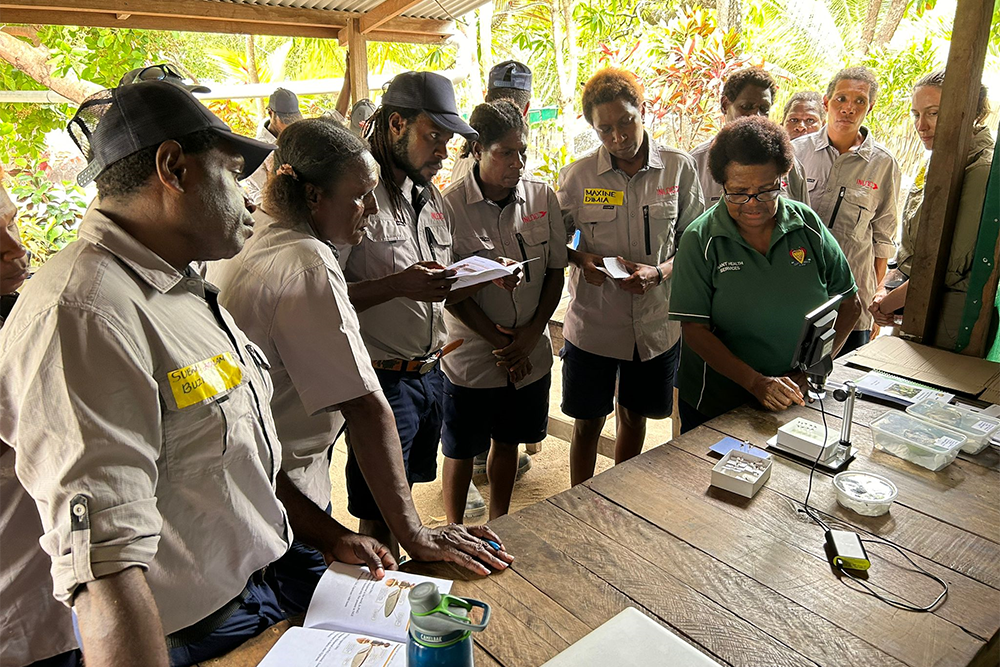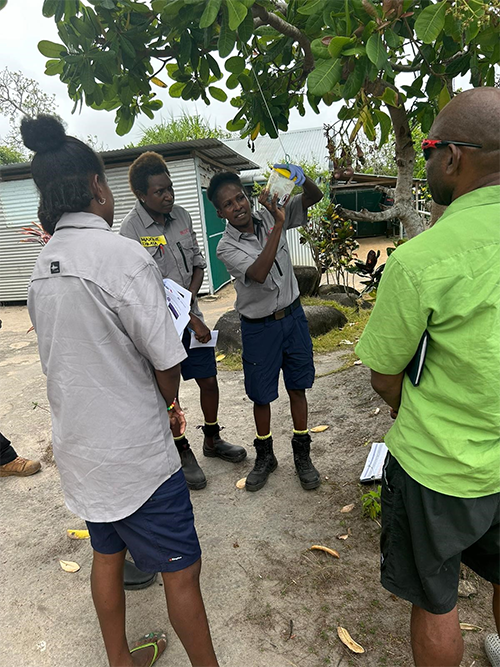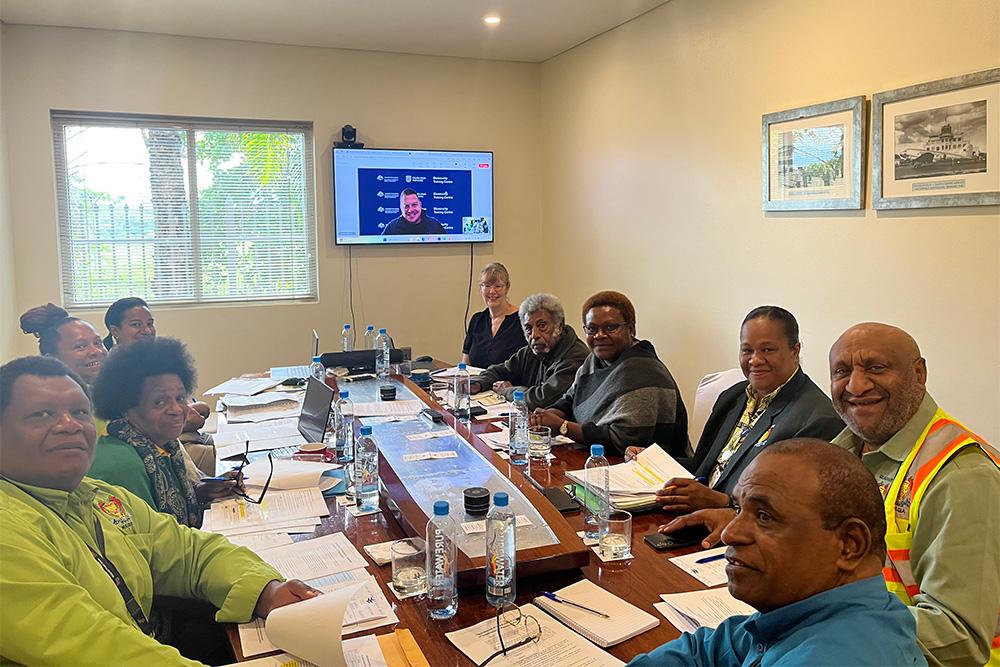In October, staff from the Australian Chief Plant Protection Office travelled to Paho Island in Papua New Guinea’s (PNG) Western Province, to deliver refresher training to Treaty Village rangers as part of the Treaty Village Fruit Fly Trapping Program (TVFFTP). The visit occurred in conjunction with staff from the Office of the Chief Veterinary Officer who also delivered refresher training for offshore animal health surveillance.

The goal of the TVFFTP is to support food security for PNG and promote stronger biosecurity outcomes for both PNG and Australia, in a region that is both very remote and difficult to access. The program is delivered by the department in partnership with PNG’s National Agriculture and Quarantine Inspection Authority (NAQIA), and follows more than 20-years of collaboration in plant health biosecurity initiatives. In addition, the operational and logistical elements of this program are coordinated by INLOC and the Treaty Village Ranger network.
The aim of this activity was to support capacity building and training within the Treaty Village ranger network, specifically around monitoring pest fruit flies and discussing the potential for managing pest fruit flies in the Treaty Villages. Fruit flies, and in particular the Oriental fruit fly Bactrocera dorsalis pose a significant issue as one of the world’s worst horticultural pests, impacting over 400 different plants, including mango, pawpaw and banana. As these villages are very remote, these communities rely heavily on what they grow and are vulnerable to the damage and crop loss that fruit flies cause.

The first phase of this program was established in 2022 and has trained over 30 PNG Treaty Village Rangers to conduct fruit fly trapping, collect fruit fly samples and support data management. Between 2022-2024, fruit fly traps in 14 Treaty Villages and Daru were cleared over 1000 times, equalling over 200 days in the field by PNG Treaty Village Rangers. Over 200,000 fruit flies have been counted and identified by DAFF scientists supporting this project, with the majority of these being Oriental fruit fly. This has increased our understanding of Oriental fruit fly populations in PNG’s Treaty Villages, the likely source of natural spread and incursions into the Torres Strait. This work has also provided insights into fruit fly impacts on food security in the Treaty Villages.
The Treaty Village Rangers expressed great pride about being part of this program, and a strong desire to share their knowledge within the Treaty Village communities. The TVFFTP will have a strong focus on stakeholder engagement over the next 12-months, to discuss what a trial of fruit fly management could look like for the Treaty Villages. If effective, this could reduce the population of Oriental fruit fly bordering the Torres Strait and improve food security outcomes for PNG Treaty Village communities.




